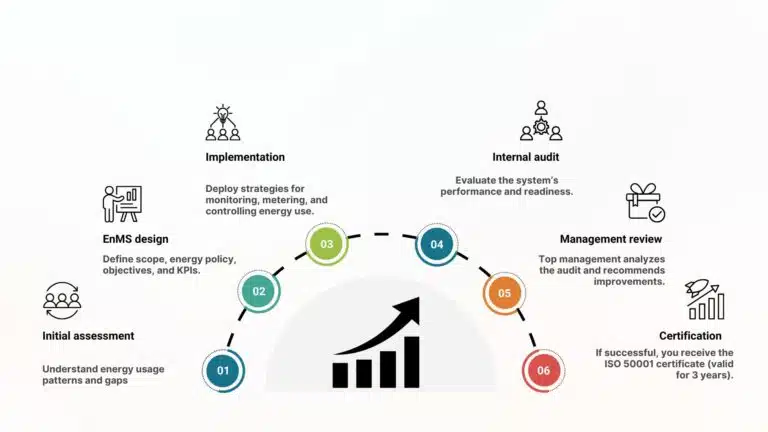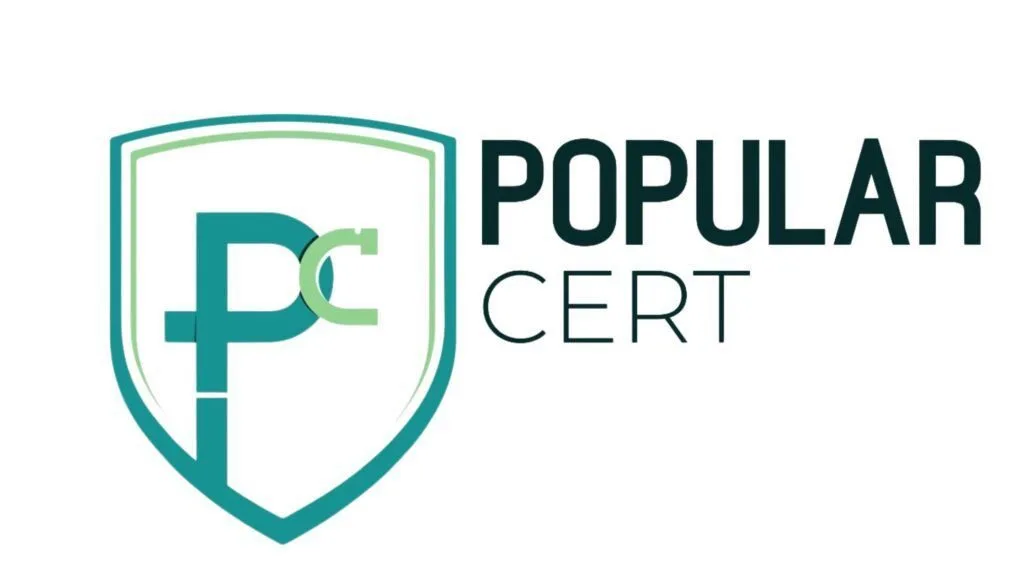Is ISO 50001 Certification Worth It in 2025? Here’s What You Should Know

In an era defined by escalating energy costs, heightened environmental awareness, and increasing regulatory pressures, businesses across the globe are constantly seeking strategies to enhance efficiency, reduce their carbon footprint, and improve their bottom line. Among the various tools and frameworks available, ISO 50001, the international standard for energy management systems, stands out as a comprehensive approach to achieving these goals.
What is ISO 50001 Certification?
ISO 50001 is a globally recognized standard developed by the International Organization for Standardization (ISO) that provides a framework for establishing, implementing, maintaining, and improving an energy management system (EnMS). It’s designed to enable organizations to systematically manage and continually improve their energy performance, including energy efficiency, energy use, and energy consumption.
Achieving ISO 50001 certification involves a structured process that typically includes the following key steps:
- Establishing an Energy Policy: Defining the organization’s commitment to improving energy performance.
- Setting Energy Objectives and Targets: Identifying specific, measurable, achievable, relevant, and time-bound (SMART) goals for energy improvement.
- Planning Energy Management Activities: Developing action plans to achieve the set objectives and targets, considering energy aspects, legal requirements, and technological options.
- Implementing the EnMS: Putting the planned activities into practice, including defining roles and responsibilities, providing training and awareness, and establishing operational controls.
- Monitoring and Measurement: Regularly tracking and analyzing key energy performance indicators (EnPIs) to assess progress and identify areas for improvement.
- Internal Auditing: Conducting periodic internal audits to ensure the EnMS is functioning effectively and conforming to the requirements of ISO 50001.
- Management Review: Regularly reviewing the EnMS by top management to evaluate its effectiveness and make decisions for continuous improvement.
By implementing an ISO 50001 compliant EnMS and achieving certification, organizations demonstrate their commitment to energy efficiency and sustainable practices in a globally recognized manner.
Why is ISO 50001 Certification Important in 2025?
- High energy costs: Saving energy directly reduces operating expenses.
- Carbon reduction goals: Many countries and industries are pledging net-zero goals.
- Customer and investor demand: Stakeholders prefer companies with strong sustainability policies.
- Regulatory compliance: Governments are encouraging or mandating energy-efficient operations.
- Global competition: ISO 50001 gives your business an edge when bidding for international contracts.
Types Of Certification
- ISO Certification
- ISO 9001 Certification
- ISO 14001 Certification
- ISO 45001 Certification
- ISO 22000 Certification
- ISO 27001 Certification
- ISO 17025 Certification
- ISO 13485 Certification
- ISO 20000-1 Certification
- ISO 22301 Certification
- ISO 50001 Certification
- ISO 37001 Certification
- IATF 16949 Certification
- ISO 29001 Certification
- ISO 31000 Certification
- ISO 20121 Certification
- ISO 10002 Certification
- ISO 41001 Certification
Get Free Consultation
Our Clients


















Share This Post
What Are the Main Benefits of ISO 50001 Certification?
- Reduced energy bills: Effective energy management reduces costs by 10-30%.
- Increased operational efficiency: Enhancing energy management contributes to better overall productivity.
- Lower carbon footprint: Serves as a valuable contribution towards ESG and sustainability initiatives.
- Improved brand reputation: Organizations with certifications are regarded as being socially responsible and prepared for the future.
- Competitive advantage: ISO certifications are a must for many clients, both corporate and governmental.
- Compliance with regulations: Mitigates legal risks associated with environmental non-compliance.
- Continuous improvement culture: EnMS enhances deep organizational learning and learning culture.
What Is the Process of Getting ISO 50001 Certified?

ISO 50001 Internal Audit Checklist
How is ISO 50001 Different from Other ISO Certifications?
Here’s how ISO 50001 stands out:
| Feature | ISO 50001 | ISO 9001 (Quality) | ISO 14001 (Environment) |
|---|---|---|---|
| Focus | Energy performance | Quality management | Environmental impact |
| Goal | Energy savings and efficiency | Customer satisfaction | Pollution control |
| Tools | Energy reviews, baseline, KPIs | Audits, PDCA, customer feedback | Aspects and impacts analysis |
| Applicability | Energy-intensive operations | Any business type | Eco-sensitive operations |
It can be implemented alone or alongside other ISO standards.
How Can Popularcert Help You Get ISO 50001 Certified?
At Popularcert, we specialize in helping businesses of all sizes achieve ISO certifications with ease and confidence. Our ISO 50001 services include:
Gap assessment
Energy reviews and performance indicators
Full documentation support
Employee training
Internal audits and mock assessments
End-to-end certification guidance
Whether you’re starting from scratch or upgrading an existing energy management program, we tailor our solutions to fit your unique needs.
Conclusion
Yes—ISO 50001 is more relevant than ever. As energy costs rise and sustainability becomes essential to business survival, having a certified Energy Management System is no longer optional. It’s a smart, strategic move that brings:
Tangible cost savings
Enhanced brand image
Legal compliance
Improved operational control
Future readiness
So, if your business wants to stay ahead in 2025 and beyond, ISO 50001 is absolutely worth the investment.
GET A FREE CONSULTATION NOW
FAQ
Is ISO 50001 only for manufacturing companies?
No. While manufacturers benefit greatly, any energy-consuming organization can implement it—offices, schools, hospitals, even hotels.
What’s the difference between ISO 14001 and ISO 50001?
ISO 14001 focuses on overall environmental management, while ISO 50001 is specifically about energy performance and efficiency.
Can we implement ISO 50001 without certification?
Yes, you can use the standard internally. However, formal certification boosts credibility and opens doors to more business.
Does ISO 50001 require hiring energy consultants?
Not necessarily, but consultants simplify the process, especially if your team lacks experience in energy management.
Will ISO 50001 help meet carbon neutrality goals?
Absolutely. It’s a powerful tool to track, reduce, and manage energy-related emissions—helping you move toward net-zero targets.
